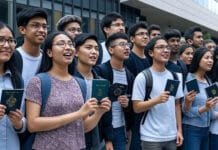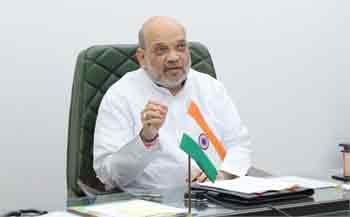A recent statement by National Commission for Protection of Child Rights (NCPCR) Chairman Priyank Kanungo has ignited a significant controversy, putting the Madhya Pradesh government under intense scrutiny. Chairman Kanungo has asserted that Hindu children currently studying in madrasas should be transferred to standard educational institutions. This article delves into the complexities of this issue, examining the concerns raised by Kanungo, the response from the state government, and the broader implications for child education and rights in India.
Kanungo’s Criticism of the Madhya Pradesh Government
In a decisive statement, NCPCR Chairman Priyank Kanungo criticized the Madhya Pradesh government’s indifference towards the educational placement of Hindu children. According to Kanungo, the School Education Department of Madhya Pradesh has shown a lack of responsiveness to concerns about Hindu children studying in madrasas. He emphasized that the education department should cease viewing children through a religious lens and ensure equal educational opportunities for all.
Kanungo highlighted the existence of 1,755 registered madrasas in Madhya Pradesh, where 9,417 Hindu children are currently enrolled. He argued that these institutions are primarily intended to provide Islamic religious education, as stipulated by the MP Madrasa Board Establishment Act. Furthermore, he pointed out that Section 1 of the Right to Education (RTE) Act excludes madrasas from its purview, creating a legal and educational grey area.
Concerns Over Educational Standards in Madrasas
The NCPCR Chairman raised serious concerns about the quality of education and the overall environment in madrasas. He stated that the teachers in these institutions often lack the necessary B.Ed or D.Ed qualifications, which are critical for ensuring a high standard of education. Additionally, he noted the absence of basic infrastructure and security measures required under the RTE Act, labeling the current state of affairs as a violation of children’s rights.
Kanungo’s assertion that keeping Hindu children in madrasas is an “unforgivable act” underscores the gravity of the situation. He called for immediate reforms, urging the Madhya Pradesh government to remove Hindu children from madrasas and enroll them in regular schools where they can receive a standard education.
The Role of the Education Department
The Education Department of Madhya Pradesh has been criticized for its passive approach to this issue. According to Kanungo, the department has failed to provide a positive response or take proactive measures to address the concerns raised. The NCPCR Chairman emphasized the need for the department to actively work towards ensuring that all children receive an equal education, free from religious biases.
Kanungo’s call to action includes a reevaluation of the current policies governing madrasas and a commitment to creating a more inclusive educational framework. He stressed that the government must uphold its responsibility to establish schools that comply with the RTE Act, thereby ensuring that all children, irrespective of their religion, have access to quality education.
Funding and Resource Allocation
Another critical aspect of Kanungo’s statement revolves around the funding and resources allocated to the Madrasa Board. He argued that diverting funds to the Madrasa Board effectively deprives poor children of their right to a standard education. This allocation of resources, according to Kanungo, is counterproductive and undermines the broader goal of educational equity.
Kanungo proposed that the government redirect its efforts and resources towards improving standard educational institutions. This includes upgrading infrastructure, enhancing teacher qualifications, and implementing robust security measures. By doing so, the government can ensure that all children, including those currently studying in non-registered madrasas, receive a comprehensive education.
Implications for Child Rights and Education
The NCPCR Chairman’s statement has far-reaching implications for child rights and education in Madhya Pradesh and beyond. It highlights the pressing need for a more inclusive and equitable educational system that does not discriminate based on religion. The current situation, where Hindu children are placed in madrasas, raises significant questions about the adherence to the RTE Act and the overall commitment to child rights.
The call for reform is not just about transferring children from madrasas to regular schools; it is about ensuring that all children have access to a conducive learning environment. This includes qualified teachers, proper infrastructure, and a curriculum that meets national educational standards.
Conclusion
In conclusion, the NCPCR Chairman Priyank Kanungo’s statement has brought to light critical issues concerning the education of Hindu children in madrasas in Madhya Pradesh. His call for immediate action by the state government underscores the need for a more proactive and inclusive approach to education. The emphasis on removing religious biases and ensuring equal educational opportunities for all children is a step towards upholding child rights and improving the overall quality of education in the state.
As the debate continues, it is essential for the Madhya Pradesh government to address these concerns and take concrete steps towards creating an equitable educational system. This includes revisiting policies, reallocating resources, and fostering an environment where every child can thrive academically and personally. The future of thousands of children depends on the actions taken today, making it imperative for the state to prioritize education and child rights.
















